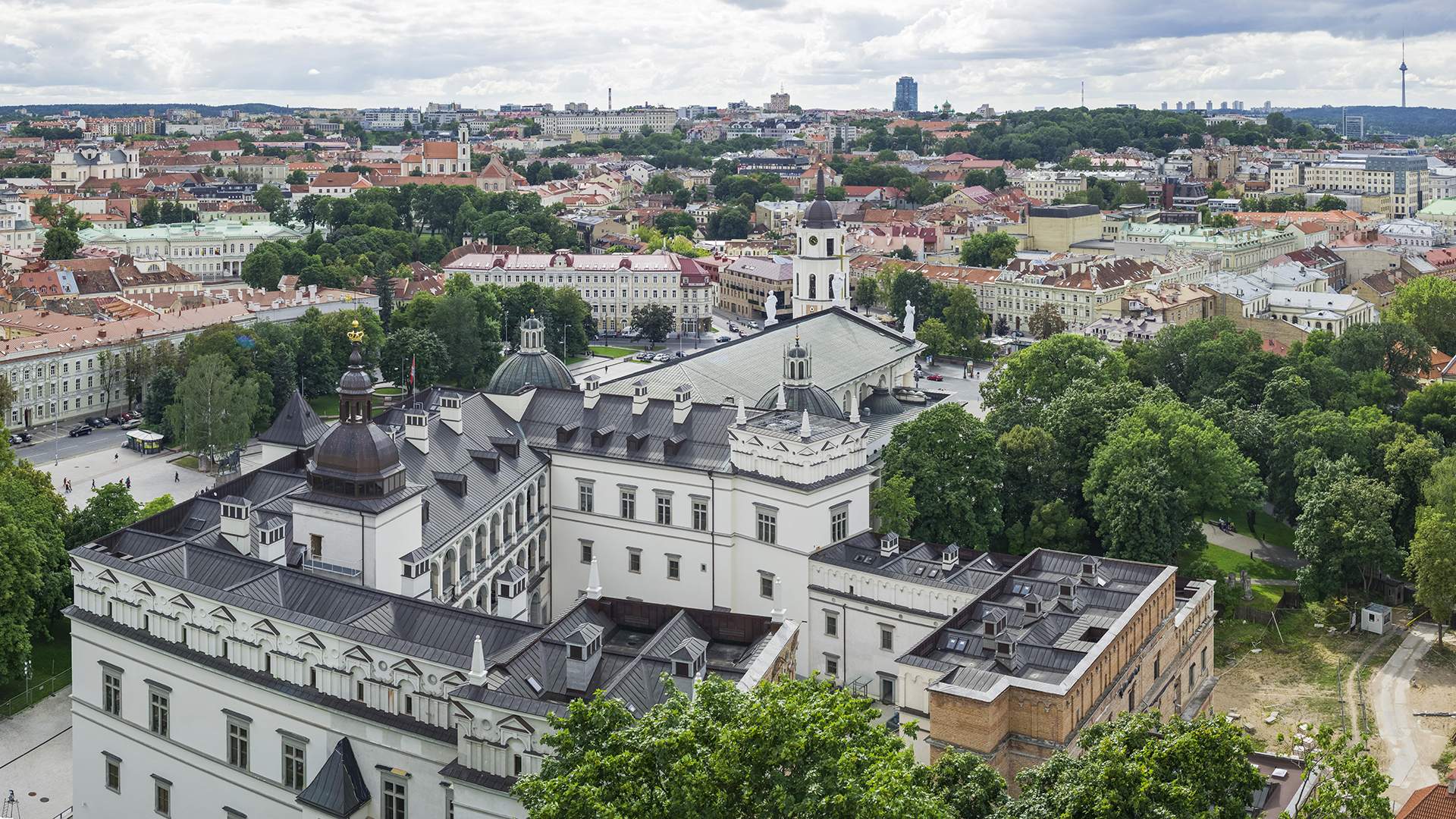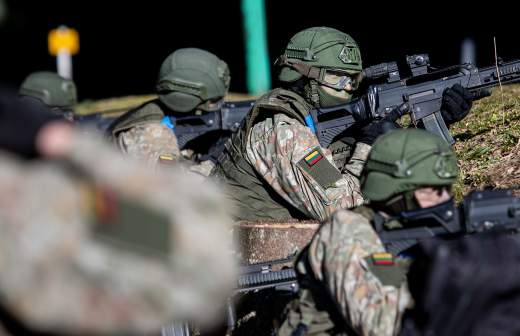- Статьи
- World
- Dragon with sprats: how Lithuania is trying to reconcile with an important partner of Russia
Dragon with sprats: how Lithuania is trying to reconcile with an important partner of Russia

Lithuania is dramatically changing its foreign policy positioning. A few years ago, Vilnius quarreled with China when it opened the Embassy of Taiwan. Now it has suddenly become clear that that step was a mistake, and the Baltic republic is talking about restoring relations with Beijing. Izvestia investigated the situation.
Without ambassadors and beer
Lithuania and China are far from each other, and it is impossible to compare the countries in terms of size, population, and many other parameters. Nevertheless, their relationship can say a lot about the situation on the planet as a whole. Ten years ago, Vilnius and Beijing interacted quite amicably. The Baltic Republic was interested in the "One Belt, One Road" project, expected to receive additional investments and load the Klaipeda port, and the visit of then—President Dalia Grybauskaite to Beijing in November 2018 was important.
Then the situation changed. At first, Vilnius limited itself to political statements, for example, in the summer of 2020, it supported criticism of the controversial national security law in Hong Kong. Six months later, the Lithuanian Foreign Ministry reprimanded the Chinese ambassador over the situation of Muslims in the Xinjiang Uygur Autonomous Region of China, and also took care of human rights violations in Tibet. Finally, two dozen Lithuanian parliamentarians called for a boycott of the Summer Olympics in Beijing.
Then they moved from words to deeds in Lithuania. In November 2021, a representative office of Taiwan was opened in Vilnius, which provoked a major scandal. The fact is that China has traditionally reacted sharply to such actions, because it considers them an encroachment on its territorial integrity. Similar institutions are opening in many countries around the world, but they work on behalf of the island's capital. In the United States, for example, Taiwan's representative office is modestly called the Taipei Economic and Cultural Office.
Vilnius went further than others, as a result, China recalled its ambassador from the republic, secured the departure of the Lithuanian ambassador to his homeland, and announced the downgrading of diplomatic relations to the level of charge d'affaires. He also applied economic pressure — he completely stopped purchases of Lithuanian beer, beef and dairy products, and suspended freight rail transportation. Even companies from third countries that used Baltic components had problems.
Lithuania, however, was not deterred. The republic withdrew from the 17+1 initiative, in which Beijing conducted a dialogue with the states of Eastern and Central Europe. She accused major Chinese companies of surveillance and espionage, refused to purchase scanners for baggage screening at airports and equipment for communication towers. In addition, diplomatic wars have not stopped until recently, and in November last year, Vilnius expelled three employees of the Chinese representative office from the country.
Trump, elections, and the economy
It gradually became clear that a confrontational foreign policy course does not lead to anything good. The trade turnover between Lithuania and China has sharply decreased. So, by the end of 2023, China purchased goods worth $134 million, which is three times less than in 2020. In December 2023 alone, Beijing imported $14.2 million worth of Lithuanian products, compared with $43.1 million in December 2020. Infrastructure projects were forgotten, and the port of Klaipeda was left without Chinese investments.
Relations with Taiwan did not go up either. The main disappointment of Vilnius was that Taipei refused to develop the production of chips, semiconductors and other electronics in the Baltic republic, which Lithuanian officials were counting on. All the ideas of creating a technopark have been shattered by the harsh reality that Lithuania simply does not have enough electricity to create such plants.
The second important factor was the global situation. The fact is that in the period 2019-2020 (in his first term as president), Donald Trump declared a trade war with China. Then Washington imposed duties and protective tariffs on a large list of products from China, announced the introduction of sanctions and restrictions against a number of Chinese officials. Lithuania then decided that it must demonstrate its loyalty to its overseas partner and launched its anti-Chinese campaign.
Now the situation is completely different. Donald Trump is back in the presidential chair, but his focus is not only on China, but also on the European Union. Representatives of the new American administration harshly criticize the EU, in early April they imposed duties on European goods in the amount of 20% (for China, the initial rate was 34%, then reached 145%). In such circumstances, Brussels and Beijing become natural allies, and little Lithuania, of course, does not want to be left on the sidelines.
The third point is related to the internal political processes. Last October, parliamentary elections were held in the Baltic republic, after which the government and the opposition switched places. The conservatives who ruled earlier were distinguished by an uncompromising foreign policy. At the same time, China was just one example. Vilnius has always been at the forefront of anti-Russian and anti-Belarusian rhetoric, and was the first in the EU to declare the Iranian Islamic Revolutionary Guard Corps (IRGC) a terrorist organization.
The new coalition was formed by the Social Democrats and their allies, who proposed to reduce the intensity of the struggle somewhat and pursue a more pragmatic policy. This approach was obviously supported by the majority of the country's residents. One survey showed that almost half of Lithuanians are against the anti-China campaign and in favor of building business relations with Beijing. More than a third also said that ties with Taiwan do not bring any benefits.
"We will not sacrifice anything"
As a result, this year there was talk in Lithuania that it would be nice to restore relations with China. Thus, Saulius Skvernelis, Speaker of the Seimas, said that Vilnius should not lag behind other EU countries. "Brussels has adopted a strategy of communication with China. The Commissioners meet and coordinate trade issues, and all States except Lithuania participate in this process. We are members of the EU, so we must have diplomatic relations at the same level as the other 26 states," he said.
In turn, Remigius Gemaitaitis, a deputy and leader of the Zarya Neman association, proposed changing the name of the Taiwan representative office. According to him, there are no investments from Taipei anyway. "I had a different opinion half a month or a month ago, but today I see that the European Union and China can become very close. I believe that Lithuania should at least begin to restore diplomatic relations with China," he said.
Against this background, Chinese representatives said that they were ready for normalization, Lithuania needed to fulfill only one condition. "The doors of dialogue are always open, and China is ready to strengthen communication and exchanges. It is only important to adhere to mutual respect, to be guided by the principle of "one China". We do not lose confidence in our cooperation and sincerely hope that we will be able to return to normal," said Fan Mei, Adviser to the Chinese mission to the EU.
The head of the Lithuanian government, Gintautas Palukas, said in mid-April that Vilnius would like to normalize relations, but was not going to apologize or make "any curtsies." "We will not sacrifice anything, because respectful bilateral relations are built not on sacrifices, humiliations or apologies, but on a very businesslike basis. If China sends its ambassador to the diplomatic mission, then we will send our own," he stressed.
What the experts say
Vsevolod Shimov, adviser to the president of the Russian Association of Baltic Studies, believes that Lithuania is being pushed by the European Union to normalize relations with China.
— Against the background of the cooling off with the United States, Brussels is trying to enlist the support of China, in such circumstances, the Lithuanian embarrassment looks inappropriate. I do not rule out that the EU would like to smooth out these contradictions, therefore it is pushing Lithuania towards Beijing. The Lithuanian government itself probably also understands that in the modern world it is better to have constructive relations with China, so it is trying to get out of the uncomfortable situation in which the country found itself because of former Foreign Minister Landsbergis," he explains.
Political analyst Alexander Nosovich believes that attempts to restore relations will lead to nothing.
— There can be no normalization for objective reasons. The fact is that Lithuania itself is not interesting to China. There would be interest if Vilnius had good relations with Russia and Belarus, then the Baltic republic could become an important transit country. But Vilnius quarreled with Moscow and Minsk a long time ago, it is not doing anything to improve the situation, in such conditions, the Balts have nothing to offer China," he emphasizes.
Переведено сервисом «Яндекс Переводчик»












